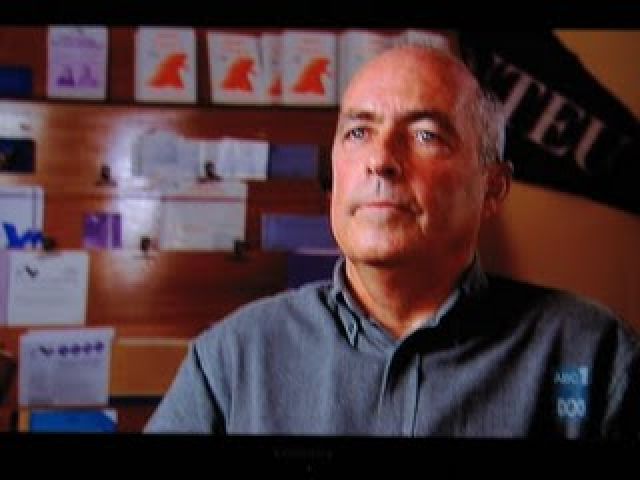
One hundred activists of the National Tertiary Education Union (NTEU) attended the Pushing the Boundaries climate change conference over April 28-29.
The two days of talks, vibrant debate and action-based workshops set a progressive agenda for ongoing union environmental activism and marked the NTEU as the left pole of the global warming debate in the union movement.
NTEU national president Jeannie Rea opened the conference by drawing attention to the special place of the NTEU in the debate about global warming.
Pushing the Boundaries was a theme that highlighted the role university workers can, do and should play in promoting a socially-just transition. Rea said that defence of scientists and researchers and of scientific methods, including peer-review, was essential for the NTEU.
Griffith University’s professor Ian Lowe and the Federation of Australian Scientific and Technical Societies’ Anna-Maria Arabia led a series of leading scientific speakers.
Lowe noted that objections to accepting science on climate change are mainly ideological, fuelled by the “denial industry”.
Arabia pointed out that the entire enterprise of science is intrinsically uncertain and sceptical, while climate deniers present their arguments as though they are based on certainty. She called on scientists to be more “targeted” in public and media interventions around climate change.
Michael Borgas from the CSIRO Staff Association stressed that scientists need to be able to speak freely and said their independence from political ideology is critical.
A second panel focused on the solutions. Stuart Rosewarne, from the Department of Political Economy at the University of Sydney, argued that the current carbon price debate is a purely political argument, reflecting the position of the commonwealth Treasury to “keep the price low”.
Beyond this, he said, financial institutions have a vested interest in a carbon market, which will become the biggest commodity market in history. Rosewarne called for a move away from carbon pricing and a focus on direct investment and regulation.
Journalist Nic Maclellan drew attention to how the carbon price plan had narrowed the climate debate and neglected the impact of climate change in vulnerable areas of the world, such as the Pacific. Dave Kerin, from the Eureka’s Futures workers cooperative, discussed alternative projects in worker-controlled social enterprises.
Tony Maher, national president of the Construction Forestry Mining Energy Union and Greens MP for Melbourne, Adam Bandt, also spoke.
Maher championed two elements of climate change policy: green industry policy plans and the ALP’s current carbon price-emissions trading scheme.

Bandt spoke about the hesitation of both major parties to consider industry policy, feed-in tariffs and serious emission reduction targets in line with other governments overseas.
He said the imposition of a price on carbon was the sole measure the Gillard government would consider and was therefore the only immediate path to carbon emissions cuts at the national level.
Australian Council of Trade Unions (ACTU) president Ged Kearney said the NTEU was “one of the unions which understands that climate change is union-business”.
She noted that 32 countries have introduced emissions trading schemes and argued that, in Australia, a carbon price will work if innovation, tripartite industry policy planning, and significant support for low income households are part of the package.
She called on unions to counter the federal opposition’s campaign against the government’s proposed carbon price with a grassroots response in support of carbon pricing similar to the 2007 Your Rights at Work campaign against Work Choices.
The ACTU has helped convene an alliance of 11 environment and social justice groups to build support for a carbon price, which will organise a week of action in June and rallies in the second half of the year.
The conference featured significant debate on support for the carbon price as a primary policy to reduce emissions.
Colin Long, division secretary of the Victorian NTEU, said the idea of decoupling of carbon emissions from the drive for endless for growth characteristic of contemporary capitalism was a “delusional discourse”.
He said unions should instead campaign to transform society and the nature of work in the transition to a carbon-free economy.
University of Melbourne professor Verity Burgmann said the movement against global warming is the most significant in history and said reforms are more likely to be won if the movement makes more radical demands.
She discussed the role that academics can play as radical intellectuals by pulling the spectrum of the climate debate to the left.
Dr Hans Baer, also from the University of Melbourne, presented his research on the Australian climate action movement, in which he is active.
NSW NTEU vice-president Helen Masterman-Smith discussed how unionists could help create the momentum to bring about effective environmental change.
More information about the conference is available at http://pushingtheboundaries.org.au
[Jeremy Smith is NTEU branch president at the University of Ballarat and a member of Socialist Alliance. Margarita Windisch is a TAFE teacher and an Australian Education Union Member.]